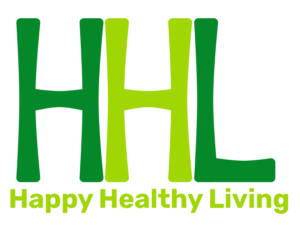10 High-Fat Foods That Are Actually Super Healthy
Healthy High-fat Foods
Healthy high-fat foods do exist. High fat foods have been given a bad name but not all foods with a high fat content are bad for you. As I’m sure you know there are good fats and bad fats. Kris Gunners wrote a great article on this topic. Kris lists 10 high-fat foods that are super healthy and explains why.
Ever since fat was demonized, people started eating more sugar, refined carbs and processed foods instead. As a result, the entire world has become fatter and sicker.
Bottom Line: Avocados are a fruit, with fat at 77% of calories. They are an excellent source of potassium and fiber, and have been shown to have major benefits for cardiovascular health.
Cheese, like other high-fat dairy products, also contains powerful fatty acids that have been linked to all sorts of benefits, including reduced risk of type 2 diabetes.
Bottom Line: Cheese is incredibly nutritious, and a single slice contains a similar amount of nutrients as a glass of milk. It is a great source of vitamins, minerals, quality proteins and healthy fats.
Many healthy and nutritious foods were unfairly demonized for being high in fat. Here are 10 high-fat foods that are actually incredibly healthy.
This article discusses the following 10 high-fat foods:
- avocados
- cheese
- dark chocolate
- whole eggs
- fatty fish
- nuts
- #organic butter
- olive oil
- coconut products
Each of these foods have some great health benefits. The animal products such as butter, cheese and fish should be taken in moderation.
Avocados have a fat content of 77% but they are great for your heart and cardiovascular system.
Cheese is a great source of calcium and protein and I have to admit I love my cheese. I could not be totally vegan because of the cheese. That said there are some people that have adverse reactions to the casein protein that is found in milk products like cheese. If you are interested in a great study regarding casein you should read The China Study.
Dark Chocolate has some great antioxidant properties and contains iron, magnesium, copper and manganese.
Whole eggs used to be considered bad for you because of the high fat and cholesterol in them but recently there are studies that show that the cholesterol doesn’t affect blood cholesterol. Eggs are high in protein. I like to get local farm fresh eggs just so I know how the chickens are treated.
Fatty fish like salmon have omega-3 fatty acids and are great for lowering your risk of heart disease.
Nuts are healthy high-fat foods which have healthy fats, fiber, vitamin E and magnesium and are great for snacking and adding to meals.
Organic butter from grass-fed cows is almost pure fat. The key to healthy butter is that you make sure you buy butter from grass-fed animals and don’t overdo it.
Extra virgin olive oil is a staple of the Mediterranean diet which has been found to help reduce risk for heart disease, depression, and dementia.
Coconut products are amazing for your health. We use coconut oil to cook with and as an ingredient in lots of our food. I use it for my teeth, just swish it around for a few minutes and it does wonders for your teeth and mouth.
There you have it. Fatty foods that you can eat and feel good about.

 Sugar that is added to your diet has the potential to cause some pretty bad health problems. Some of these problems include: Tooth decay, liver problems, fatty liver disease, insulin resistance, type 2 diabetes, cancer, weight gain and heart disease.
Sugar that is added to your diet has the potential to cause some pretty bad health problems. Some of these problems include: Tooth decay, liver problems, fatty liver disease, insulin resistance, type 2 diabetes, cancer, weight gain and heart disease.